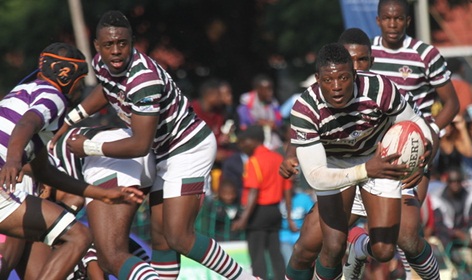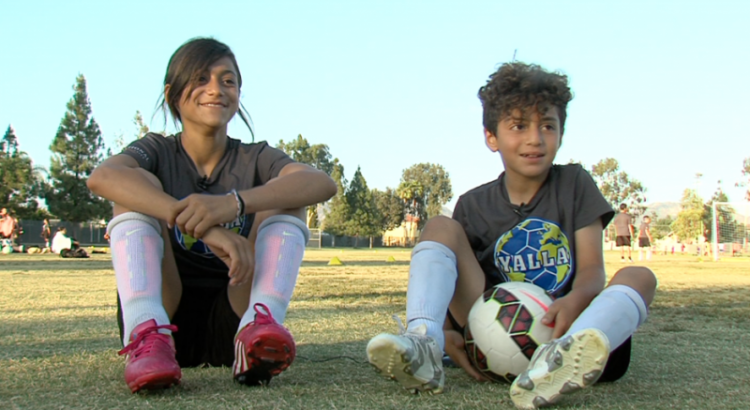EE.UU/ 5 de julio de 2016/ Fuente: globalvoice
This article by Jean Guerrero originally appeared on PRI.org on June 27, 2016, and is republished here as part of a content-sharing agreement.
Cuando la familia llegó a los EE.UU., que solicitaron asilo en San Diego. Amira pensó que la parte más difícil de su viaje había terminado. Se dio cuenta de que no era tan pronto como empezó el segundo grado – aprendiendo Inglés fue duro, y ella había perdido meses de la escuela cuando fue detenida en México. «Esos últimos cinco meses que no aprendieron nada», dijo. «Me sentía tonta, porque no sabía las respuestas a cualquier pregunta mi profesor me preguntaba.» La familia de Amira se encuentra entre un número creciente de refugiados que huyen de la violencia en América Central que están encontrando dificultades en la forma de discriminación y las dificultades educativas. Dijo que sus compañeros de clase la intimidaban. «Los niños que vienen a mí, y me dicen:» Hola, chica rara «, y yo no entendía nada porque yo no sabía nada de Inglés al principio y yo pensé, se trata de un país en el que yo no debo estar, yo no soy bienvenido aquí «, dijo. Pero entonces su familia aprendieron sobre YALLA, un programa después de la escuela que comenzó hace seis años. Se enseña fútbol a los refugiados y los inmigrantes, utilizando el deporte como un gancho de diversión para los servicios académicos serios.
Amira Matti, 11, remembers the day her little brother was almost kidnapped near their home in Guatemala City. “My little brother comes running to us and he says, ‘Someone tried to get me,’” she said. “It looked like he’d seen a ghost.” A passing driver had rescued him from the kidnappers.
So Amira’s family decided it was time to get out of Guatemala, with its rising gang violence, and head for the United States. On the way, Mexican officials stopped the family and put them in a detention center for more than five months. Amira said it was a nightmare.
“You couldn’t sleep because there were these huge bugs that were roaming around the whole place,” she said. “It was like a thousand of them.”
Listen to this story on PRI.org »
When the family made it to the US, they applied for asylum in San Diego. Amira thought the hard part of their journey was over. She realized it wasn’t as soon as she started second grade — learning English was tough, and she had missed months of school when she was detained in Mexico. “Those past five months I didn’t learn anything,” she said. “I felt dumb because I didn’t know the answers to any questions my teacher would ask me.”
Amira’s family is among a rising number of refugees fleeing violence in Central America who are encountering challenges in the form of discrimination and educational difficulties.
She said her classmates bullied her. “Kids would come up to me, and say, ‘Hi, weird girl,’ and I wouldn’t understand anything because I didn’t know any English in the beginning and I would think, this is a country I’m not supposed to be in. I’m not welcome here,” she said.
But then her family learned about YALLA, an after-school program that started six years ago. It teaches soccer to refugees and immigrants, using the sport as a fun hook for serious academic services.
Coached by YALLA’s mentors and its English-language software that helps with reading and writing, Amira quickly caught up with her classmates. “When you didn’t understand something in English, it would explain it to you in Spanish, and it would tell you to repeat it,” she explained.
She also, finally, felt like she belonged somewhere. At YALLA there are students from Iraq, Sudan, Honduras and elsewhere. They bond because they’ve all been uprooted.
Amira’s little brother Matti (his first name is the same as his last), 8, also practices English in the YALLA program. Riyam Mansoor, an Iraqi refugee, helps him. Mansoor says many of the program’s mentors are immigrants, and their friendships with the students are key to success.
The soccer part helps build ties too. “With soccer, you don’t usually need a language to speak in. It’s like a universal language,” she said.
Mark Kabban, who started the YALLA program, said soccer helps the staff build friendly relationships with the students. “We’re able to have healthy manipulation,” he said. “We’re able to influence them a lot more in their academics because of the things we have in soccer.”
This year, 20 high schoolers graduated from the YALLA program, receiving a record $2.4 million in college scholarships. But Kabban has noticed a change ahead of the next funding round: Some donors are withholding their support. He thinks it’s because of the current immigration debate in the US electorate.
“Politically, what’s happening I think in the shift of public attitude towards immigrants, especially people coming from the Middle East, has affected our young people,” said Kabban.
“There have been some donors who don’t like that we serve Muslim kids,” Kabban said, who would not name a particular donor. “At the end of the day, I’m like, if they don’t want to invest in the diversity of our kids, then I don’t want their money.”
Kabban also said that YALLA students are complaining of more discrimination at school.
“Our scholar athletes are coming to us and saying ‘we feel discriminated against,’” he said. “In our six years, I’ve never heard that before. And I don’t know what to tell them other than, hey, this is who we are and we’re going to stick together and we’re going to keep working hard and we’re going to keep being the best people we can be.”
Amira said she feels supported at YALLA, and has learned to believe in herself and her big ambitions — she wants to be a heart surgeon — even though some of her non-immigrant classmates have told her she can’t be a surgeon because she’s Guatemalan.
Amira said she is keeping her eye on the goal.
Fuente: https://globalvoices.org/2016/07/03/refugee-children-in-california-say-discrimination-at-school-is-getting-worse/
Imagen: https://globalvoices.org/wp-content/uploads/2016/07/Screen-Shot-2016-06-21-at-3.54.29-PM-800×450.png









 Users Today : 81
Users Today : 81 Total Users : 35460098
Total Users : 35460098 Views Today : 101
Views Today : 101 Total views : 3418732
Total views : 3418732